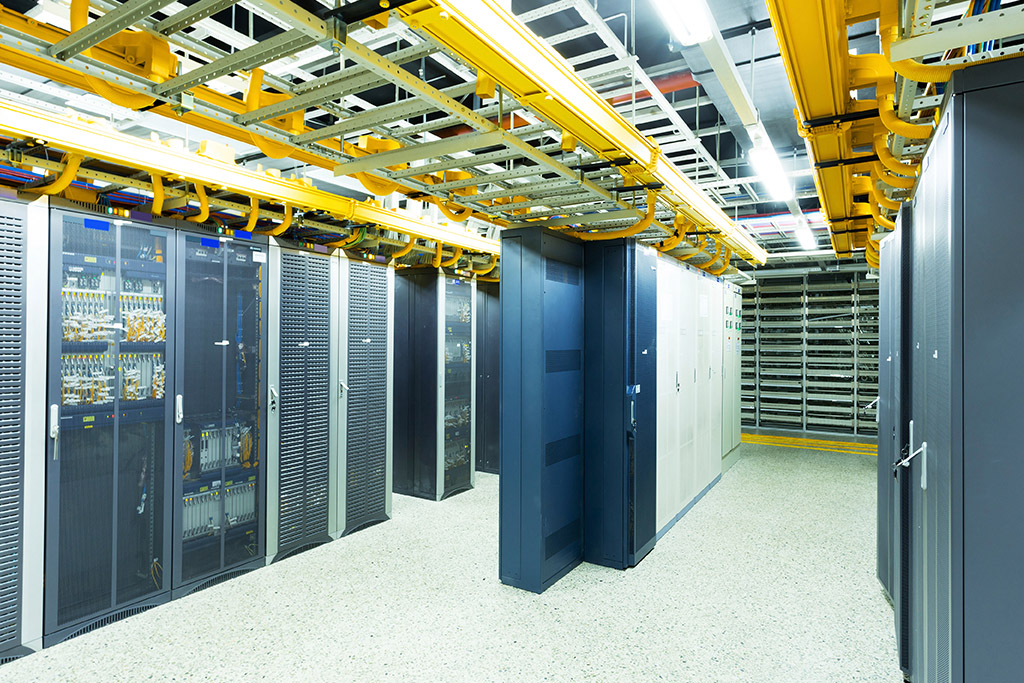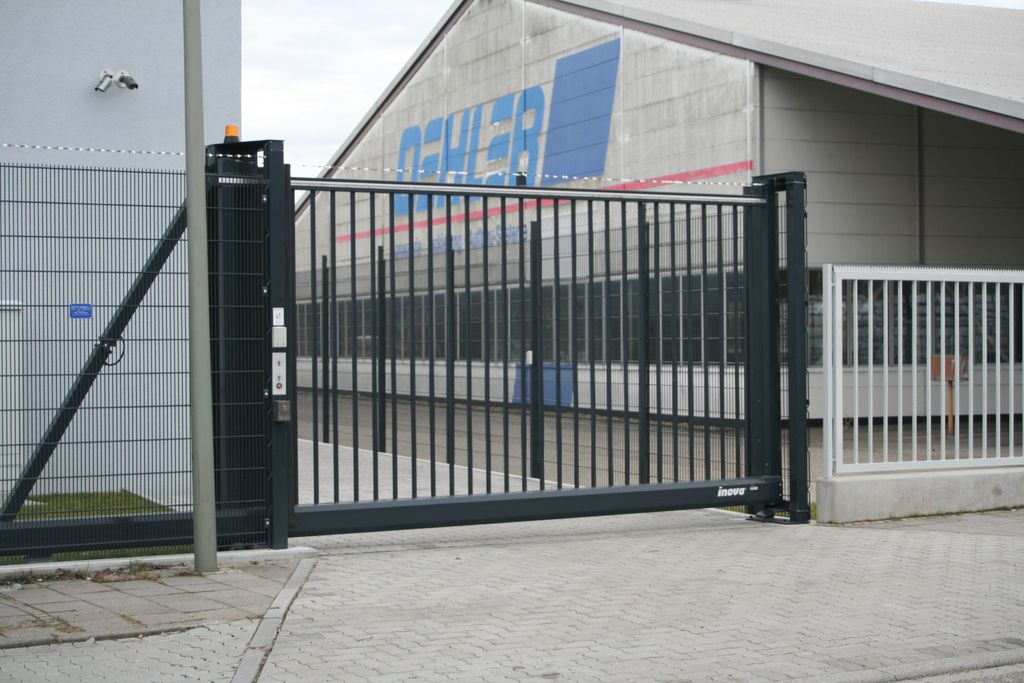What kinds of servers does SIM-Networks offer?
Cloud server
A server for a business that wants to deploy data and apps in a pre-made ecosystem and scale computing resources quickly. Backups, VPNs, load balancing: all of these tasks are already solved
- Instant activation
- Flexible resources
- TIER III+ data centers in Germany
- 2 availability zones
- DDoS protection
- Support 24/7
Reach out to us We will contact you regarding your terminal server as soon as possible
Dedicated server
Bare metal server hosting is a solution for a company that wants full control over its servers and access to fully unique configurations. Get a pre-built server for ERP or a custom cluster for a demanding app
- Exclusive access to resources
- Any hardware you need
- TIER III+ data centers in Germany
- Free installation
- Unique network configurations
- Support 24/7
Reach out to us We will contact you regarding your terminal server as soon as possible
Virtual servers (VPS)
Affordable & professional hosting platform for business tasks with limited demands towards computing power. Rent a Windows server or rent a Linux server based on ESXi or XEN & work with each OS efficiently
- Intel® Xeon® CPU
- From 20 GB of backup storage & 20 GB SSD
- TIER III+ data centers in Germany
- Cost-efficient
- Unlimited traffic
- Support 24/7
Reach out to us We will contact you regarding your terminal server as soon as possible
Cloud server
Bora
Cloud Server
Marin
Cloud Server
Sirocco
Cloud Server
Dedicated server
Start
Dedicated Server
Single
Dedicated Server
Dual
Dedicated Server
Dual+
Dedicated Server
Virtual servers (VPS)
What's the difference between the servers for business?
| Criterion | Cloud Server | Dedicated Server | VPS |
|---|---|---|---|
| Performance | High, depends on resources | High, depends on hardware | Sufficient for simple tasks |
| Scaling | Very flexible, instant | Tied to hardware | Limited, harder to scale |
| Security | High, has built-in solutions | User tools + data center measures | Data isolation + data center measures |
| Fault tolerance | High, thanks to n+1 redundancy | High with clustering | Data center redundancy + backups |
| Flexibility | Very high, easily adaptable | Maximal, everything is configurable | Configurable storage and RAM |
| Price | On average higher than other options | Depends on configuration | Affordable, budget-friendly solution |
Why rent servers in Europe from SIM-Networks?
Project-based approach
Establish the project
We talk to the client & consider their business goals, requests and preferences
Design the solution
We draft the cloud project with the client’s expectations in mind & present it
Implement the project
Once the client approves the design, our engineers build the solution from scratch
Support the business
We provide personalized support 24/7 & on-demand cloud management services
Data centers in Europe




Automatic Fire Protection
Early detection and suppression systems divide facilities into four zones, tracking temperature changes in real time. Fires are stopped before they start, ensuring maximum safety for equipment.
Tier III+ Redundancy
All critical infrastructure is duplicated, so systems remain online during maintenance, failures, or natural disasters. Business continuity is built into the design.
Multiple Power Sources
Two independent utility feeds supply power, backed by diesel generators that run up to three days. This layered approach prevents outages even in emergencies.
Climate Control
Duplicated cooling units and precision systems under raised floors keep server rooms at 22°C ± 4°C. Stable conditions optimise performance and extend hardware life.
Security Systems
Access is strictly controlled through clearance levels, ID cards, digital locks, and video surveillance with archiving. RackGuard, PCI DSS–compliant, adds rack-level protection against unauthorized access.
24/7/365 Support
We are available 24/7 and ready to assist you in your preferred language.
Reach out directly to our human experts — this is an AI-free, no-chatbot zone. Whether you need to resolve a specific issue or request a consultation, we’ll get back to you within 1 hour, guaranteed by our SLA. You can contact us via phone, email, ticket system, or live chat - whichever suits you best.
For technical details of our cloud solutions, explore our extensive service documentation, or quickly find answers to specific tasks in our Knowledge Base.
Your Certified Partner
What do SIM-Networks clients say about us?
“We were pleasantly surprised by SIM-Networks’ response time after our experiences with other providers. We got a response to our first request in 5 minutes. Most importantly, we got a transparent price calculation. Even in matters that required more time and evaluation, the manager kept us informed. We never felt that we were in the dark, we were always aware of what was going on with our potential partner.”
Edward Smishlyayev, IT Director of Lohika Company (part of Capgemini Engineering group)
“We had to start searching for a hosting provider whose capacities could handle our vast product catalogue. After 2 negative experiences with local hosting, we decided to try the services of a European provider. With SIM-Networks, we uploaded the catalogue on the first try, without any delays. Ever since that moment, the infrastructure has worked well for 4 years.”
Andrei Semeniuk, IT-Director, D.S. Pharmacies network (Market Universal LTD)
“The solution that SIM-Networks experts created for me met all the requirements for corporate IT infrastructure. The design of the cloud ensures the reliable operation of my business and the high availability of my systems round-the-clock. I recommend SIM-Networks’ services to my customers, and I want to note that my clients are also very pleased with the service.”
Vadim Podovalov, CEO of Ignis Fatum Ltd.
Contact us. We are always ready to help
How to pick a server for your business?
To choose the perfect server, you should start with a basic question: why does your business need professional hosting? At SIM-Networks, we believe that a company's real needs should be the foundation of this choice, whether it's a virtualized server for a website or a high-availability cluster for an app with a lot of traffic. The differences between types of server hosting are important, but they should always be discussed in the context of the user’s business goals. Let’s explore how the technological features of servers impact a company’s real-world capabilities.
Cloud Servers
A cloud server is a platform that runs on the virtualized resources of many physical servers. With a cloud server, the user doesn’t work with individual machines but with a pool of resources. Compared to physical server hosting, you can think of a cloud server as a construction set. For example, if you have a pool of 16 CPU cores, 64 GB of RAM, and 400 GB of storage, you can use it to create individual instances and install software on them. This pool can also be expanded almost without limits.
Renting a cloud server solves the problems of companies that want to scale quickly and work with ready-made services. Need to launch a platform for a new project? Experiencing a sudden traffic surge in your app? Need to prepare a sales forecast for next year? With a cloud server, you can add computing power for any task in just a few minutes. All you have to do is specify the parameters of an instance in the control panel. In addition, tasks like backups and secure VPN connections are already taken care of; your IT team doesn’t need to spend time on them.
Dedicated Servers
A dedicated server is a standalone physical machine. Unlike a cloud server, where resources are shared among many clients, with a dedicated server you have full control over the hardware. The CPUs, RAM, storage, and network configurations are entirely determined by the needs and preferences of your business. This platform offers maximum control to the user but also requires more time and effort to manage.
The freedom offered by bare metal server hosting makes it a suitable foundation for almost any task. For example, a single dedicated server can host all the tools of a small business: website, CRM, ERP, remote desktops, and more. At the same time, you can build a high-performance cluster based on dedicated servers and run an application that supports simultaneous access for tens of thousands of users. To make the most of the potential of renting a bare metal server, you need expertise, either from your in-house IT team or from your provider.
Virtual Servers
VPS (virtual server) is a kind of stepping stone between classic hosting and a dedicated server hosting. One physical server is divided into several virtual environments, each of which works as a separate server with its own operating system, resources and access. VPS guarantees a dedicated share of the CPU, memory and disk space, so that the user has a good level of autonomy at a relatively low cost. The VPS user also has root access and can install any software, configure firewalls, run their own scripts and services.
VPS is a good choice for businesses in the early stages of development, developers, startups and any other project that has outgrown the capacities of traditional hosting but does not yet need a powerful infrastructure. With a VPS, you can host websites, test applications, deploy remote desktops and more quickly and without significant investments. However, it is worth considering that virtual servers are difficult to scale in the long term; sooner or later your business will need a platform with better potential for technological growth.
Regardless of the type of server you’re considering, whether it’s virtual, cloud, or dedicated, the real benefits are revealed only when the solution aligns with your business needs. At SIM-Networks, we believe that a personalized approach is the key to the success of any server infrastructure project. There is no one-size-fits-all solution: every business has its own goals, limitations, and growth trajectory. That’s why we always start with a conversation, analyze the client's needs, and offer a solution that becomes more than just a remote computer, but a practical tool for growth and efficiency.
To choose the perfect server, you should start with a basic question: why does your business need professional hosting? At SIM-Networks, we believe that a company's real needs should be the foundation of this choice, whether it's a virtualized server for a website or a high-availability cluster for an app with a lot of traffic. The differences between types of server hosting are important, but they should always be discussed in the context of the user’s business goals. Let’s explore how the technological features of servers impact a company’s real-world capabilities.
Cloud Servers
A cloud server is a platform that runs on the virtualized resources of many physical servers. With a cloud server, the user doesn’t work with individual machines but with a pool of resources. Compared to physical serv…
To choose the perfect server, you should start with a basic question: why does your business need professional hosting? At SIM-Networks, we believe that a company's real needs should be the foundation of this choice, whether it's a virtualized server for a website or a high-availability cluster for an app with a lot of traffic. The differences between types of server hosting are important, but they should always be discussed in the context of the user’s business goals. Let’s explore how the technological features of servers impact a company’s real-world capabilities.
Cloud Servers
A cloud server is a platform that runs on the virtualized resources of many physical servers. With a cloud server, the user doesn’t work with individual machines but with a pool of resources. Compared to physical server hosting, you can think of a cloud server as a construction set. For example, if you have a pool of 16 CPU cores, 64 GB of RAM, and 400 GB of storage, you can use it to create individual instances and install software on them. This pool can also be expanded almost without limits.
Renting a cloud server solves the problems of companies that want to scale quickly and work with ready-made services. Need to launch a platform for a new project? Experiencing a sudden traffic surge in your app? Need to prepare a sales forecast for next year? With a cloud server, you can add computing power for any task in just a few minutes. All you have to do is specify the parameters of an instance in the control panel. In addition, tasks like backups and secure VPN connections are already taken care of; your IT team doesn’t need to spend time on them.
Dedicated Servers
A dedicated server is a standalone physical machine. Unlike a cloud server, where resources are shared among many clients, with a dedicated server you have full control over the hardware. The CPUs, RAM, storage, and network configurations are entirely determined by the needs and preferences of your business. This platform offers maximum control to the user but also requires more time and effort to manage.
The freedom offered by bare metal server hosting makes it a suitable foundation for almost any task. For example, a single dedicated server can host all the tools of a small business: website, CRM, ERP, remote desktops, and more. At the same time, you can build a high-performance cluster based on dedicated servers and run an application that supports simultaneous access for tens of thousands of users. To make the most of the potential of renting a bare metal server, you need expertise, either from your in-house IT team or from your provider.
Virtual Servers
VPS (virtual server) is a kind of stepping stone between classic hosting and a dedicated server hosting. One physical server is divided into several virtual environments, each of which works as a separate server with its own operating system, resources and access. VPS guarantees a dedicated share of the CPU, memory and disk space, so that the user has a good level of autonomy at a relatively low cost. The VPS user also has root access and can install any software, configure firewalls, run their own scripts and services.
VPS is a good choice for businesses in the early stages of development, developers, startups and any other project that has outgrown the capacities of traditional hosting but does not yet need a powerful infrastructure. With a VPS, you can host websites, test applications, deploy remote desktops and more quickly and without significant investments. However, it is worth considering that virtual servers are difficult to scale in the long term; sooner or later your business will need a platform with better potential for technological growth.
Regardless of the type of server you’re considering, whether it’s virtual, cloud, or dedicated, the real benefits are revealed only when the solution aligns with your business needs. At SIM-Networks, we believe that a personalized approach is the key to the success of any server infrastructure project. There is no one-size-fits-all solution: every business has its own goals, limitations, and growth trajectory. That’s why we always start with a conversation, analyze the client's needs, and offer a solution that becomes more than just a remote computer, but a practical tool for growth and efficiency.